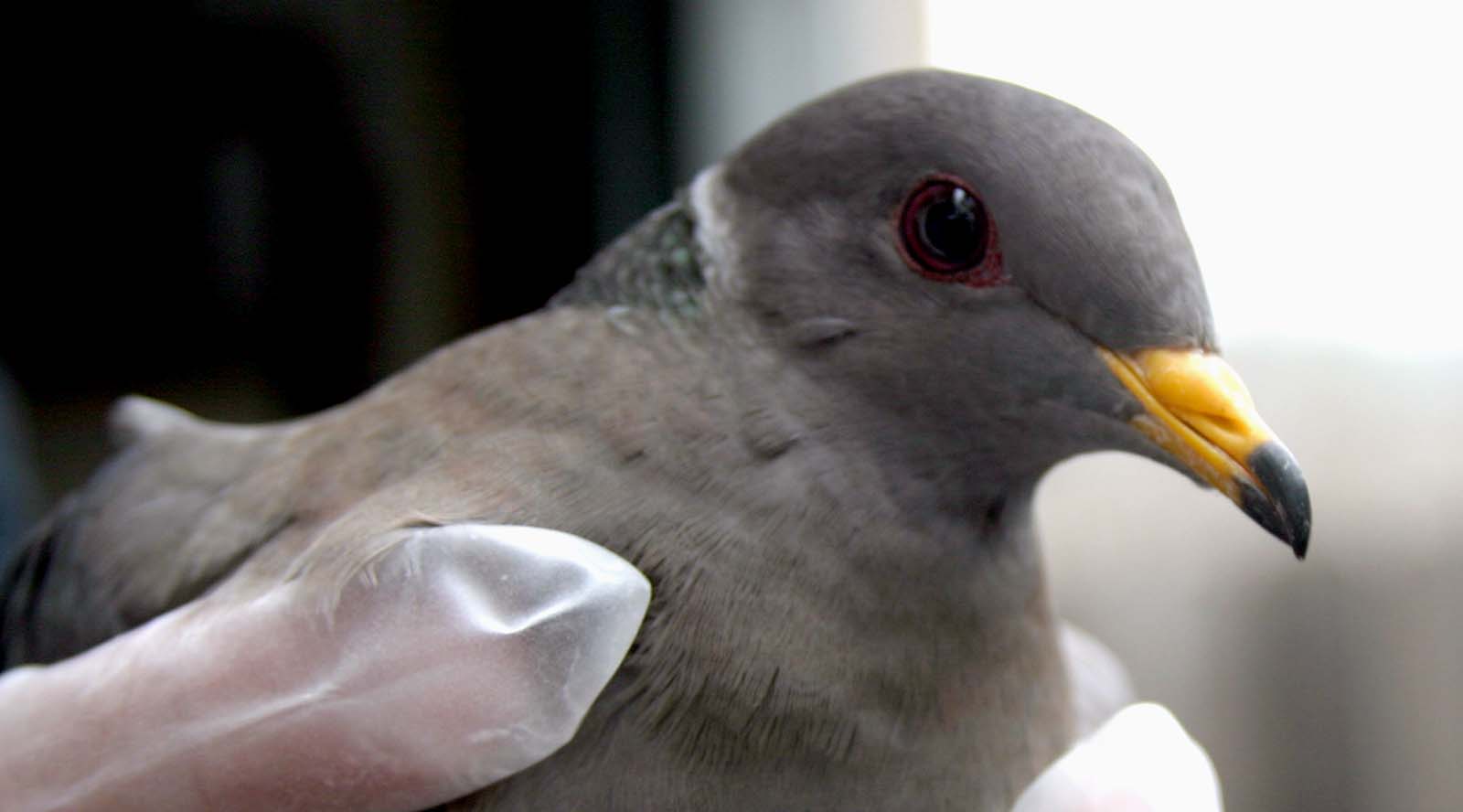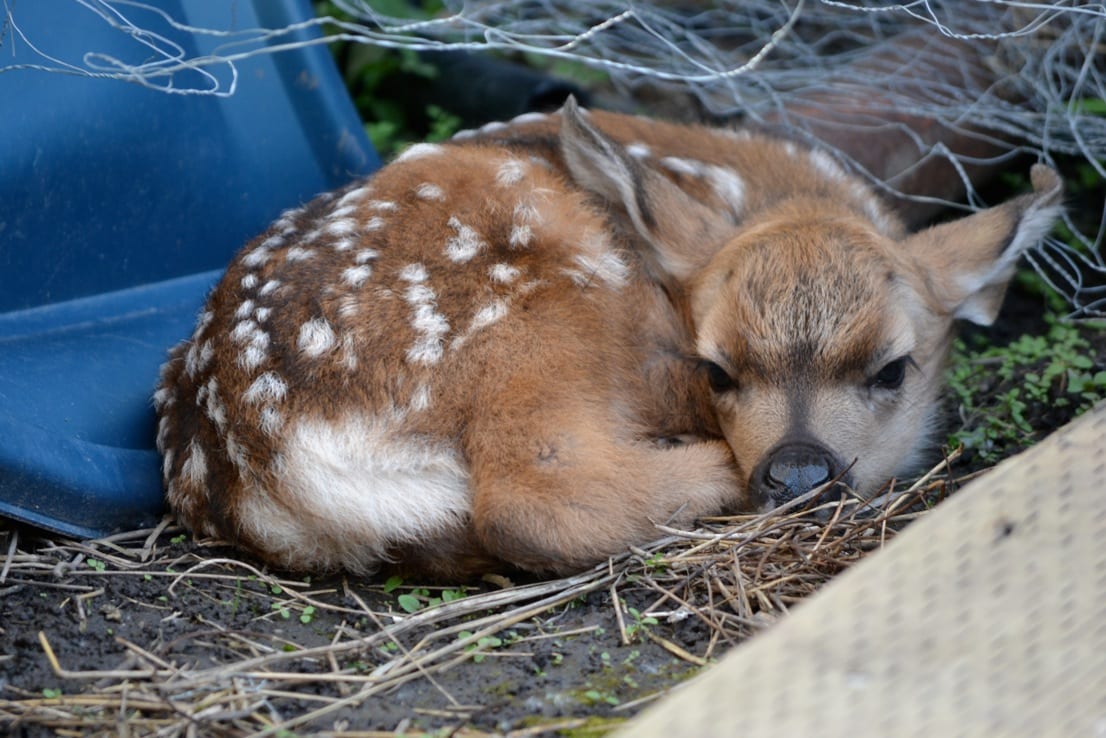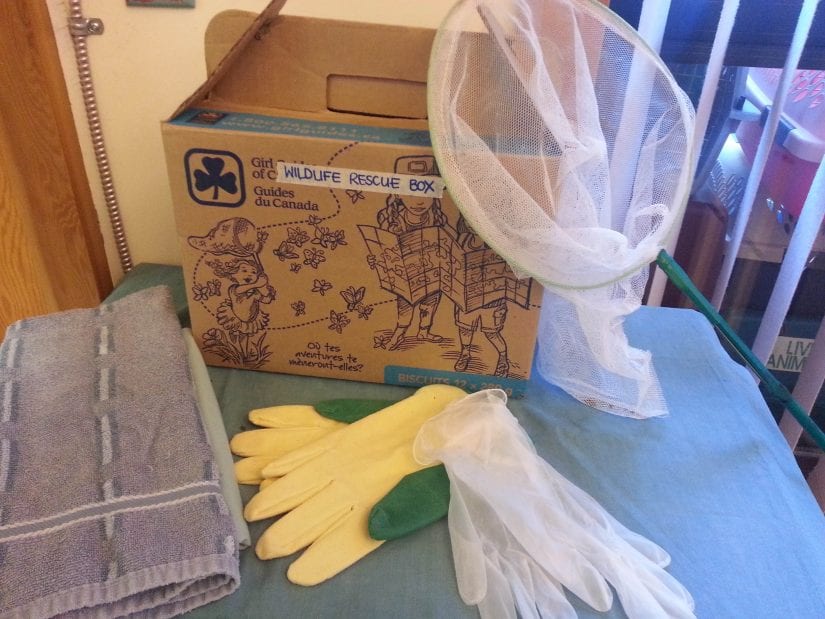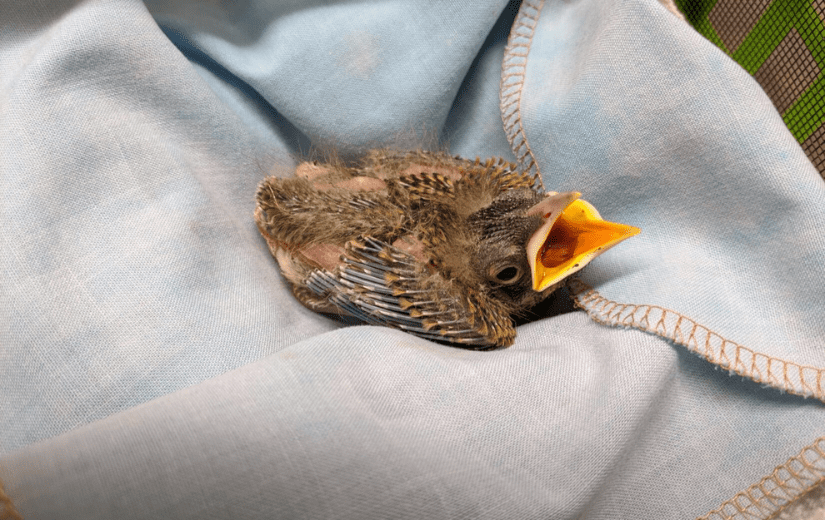Knowing when to help is the first step in rescuing a wild animal. It may be hard to tell when a wild animal needs help — some stages of their development and growth will naturally look awkward, like fledgling birds or moulting crows, and while you may want to help, sometimes “help” can do more harm than good. Learn more about when a baby wild animal needs help.
There is no ambulance for wildlife — if you are certain or have confirmed that a wild animal needs help, you are their best hope of getting to a wildlife rehabilitation centre or veterinarian. Most centres have limited resources for animal transport and must use their volunteers where they are needed most.
Have you found an injured, orphaned, or sick wild animal?
A wild animal might need help if they:
- have obvious signs of injury (blood, wounds, etc.)
- have been hit by a car, collided with a window, or been caught by a cat or dog
- seem ‘sleepy’ or don’t respond when you approach
- seem dizzy or disoriented, or stumble and fall when they move
- are a baby and have been crying for a long time, are covered in bugs, or are cold and not moving very much
If you have found a wild animal in distress, they need professional help as soon as possible. Find your nearest wildlife rehabilitation centre in British Columbia or contact the BC SPCA Animal Helpline at 1-855-622-7722 for advice.
Are you in the Greater Victoria area? Check the Greater Victoria wild animal support directory (PDF)
Taking pictures or videos can help our staff determine what needs to happen next.

Does this ‘orphaned’ baby need help?
A wild baby found alone doesn’t always need help. In many cases, the parent is hiding just out of sight, ready to return once the human danger is gone. A baby’s best chance of survival is with their mom. Every year, baby birds and mammals are mistakenly taken from their families each year by well-meaning rescuers.
Unless there are clear signs of injury or sickness (like those listed above), it is best to leave the baby alone and call your local wildlife rehabilitation centre or the BC SPCA Animal Helpline at 1-855-622-7722 for advice.
Interested in learning more? Find out what to do if you have found a baby rabbit, found a baby bird, found a baby deer or found a baby seal.

How to safely capture and contain a wild animal
Most small birds and mammals can be caught safely following these steps. For larger birds and adult mammals, call your local wildlife rehabilitation centre or the BC SPCA Animal Helpline at 1-855-622-7722 for next steps.
Wild animals don’t know you’re trying to help them. Remember that they are easily stressed, and even injured animals will try to bite or scratch if you try to contain them.
Safety first: Don’t try to catch a wild animal if it risks your safety (or someone else’s)!
- Find a sturdy box with a lid and (ideally) two towels. Poke air holes in the box with a pen or pencil. Place one towel in the bottom of the box—this will absorb urine and feces and provide some grip for the animal.
- Not too big, not too small! Your box should be just big enough for the animal to be able to stand up and turn around, but not too big. If the box is too big, animals may run or flap around, and could hurt themselves.
- Use another towel or jacket to cover the animal (including their head and eyes) – this protects you and calms the animal.
- Gently pick up the animal and place them in the box. Remove the towel used to cover and capture the animal as you close the lid, so the animal doesn’t get too hot and movement is not restricted.
- Cover the box or crate with a towel so the animal can’t see out and people can’t see in.
- Transport the animal to your nearest wildlife rehabilitation centre or veterinarian as soon as possible — keeping pets away and noise to a minimum.
If you can’t transport the animal right away, ask a friend, relative or neighbour to help. If transport can’t be organized right away, you may need to temporarily keep the contained animal until transport is organized.
How to safely keep a contained wild animal before transportation
- Keep the contained animal in a warm, quiet and dark place away from pets and other noises. Closets and bathrooms work well prior to transporting to a wildlife rehabilitation centre.
- If the animal is a baby or is wet, you can tuck a heating pad set to ‘LOW’ under half of the box to keep them warm. Putting the heat under only half of the box allows the animal to move away from it if they are too warm.
- Do not give the animal food or water unless you have been instructed to do so by a wildlife rehabilitator – this can cause serious complications and even death for animals that are already in a stressful situation.
- If you have been instructed to provide food or water, remove it from the box before transporting the animal to prevent spills that may soil feathers or fur or cause further injury — again keep pets away and noise to a minimum.

Remember not to pet or cuddle the animal, as this is very frightening for wildlife. They don’t understand that you are trying to help them, and they will feel better if they are left alone in a quiet area. It is in the best interest of the animal to be transported to a wildlife rehabilitation centre as soon as possible. Adult animals who are closing their eyes or panting are displaying signs of serious stress and should be transported immediately.
Transporting a wild animal
When transporting an animal to a wildlife rehabilitation centre or veterinarian, always make sure the animal is contained first, following the steps above. Never travel with an uncontained wild animal in your car, and do not provide food or water. To minimize stress for them, keep as quiet as possible, and don’t peek—this can be very scary for them and lead to escape.
Are you in the Victoria area, and want to help? Become an animal transport volunteer for Wild ARC.
Still not sure how to help?
Call your local wildlife rehabilitation centre or the BC SPCA Animal Helpline at 1-855-622-7722 for advice. They can let you know the best next steps to help with your wildlife situation.

